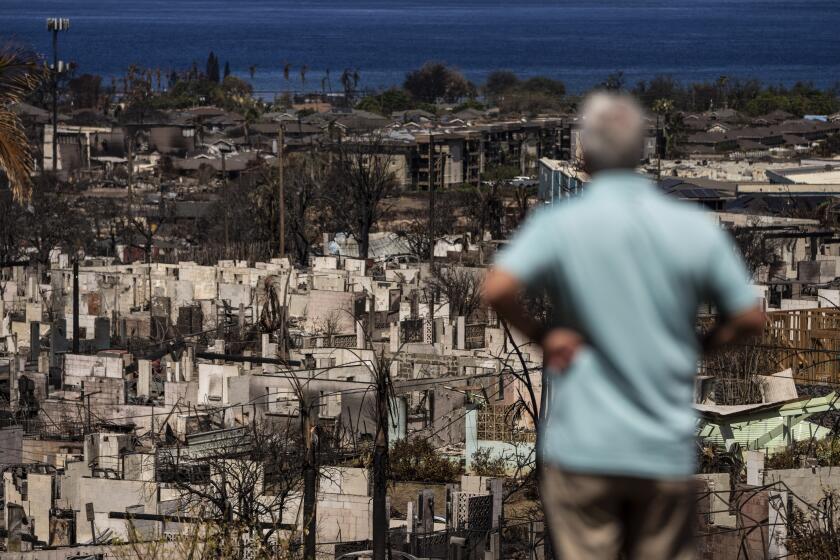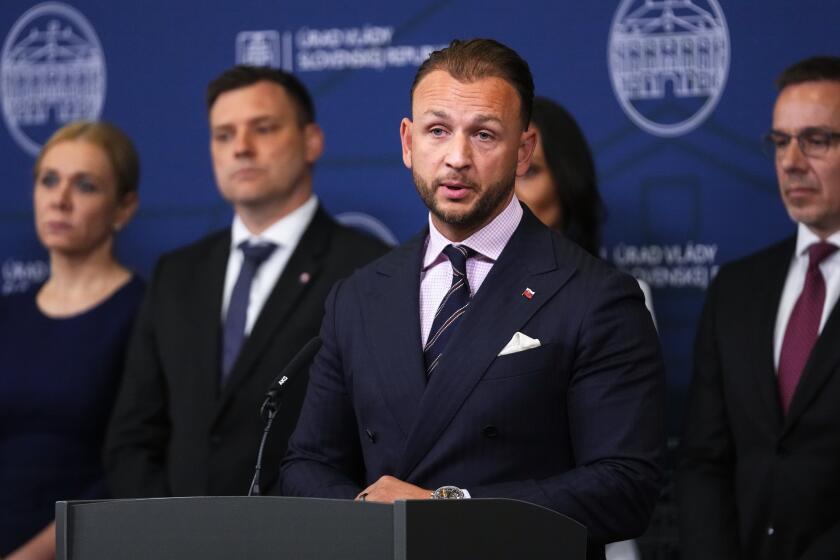Grow Up, America : Our Sentimentality Hobbles Our Role in a Dangerous World
We feel sorry for the hostages in Lebanon. We see their photos on television, listen to the entreaties of their families, and imagine ourselves in their place. Why should they--simple Americans going about their business--be picked on and victimized? This cannot be allowed to happen, we think. They must be set free, and, if possible, their tormentors punished.
Here, in effect, we have the Ronald Reagan syndrome. A wrong has been committed against an innocent. A member of the clan has been abducted. Whatever price necessary must be paid to secure his return.
This reasoning, however touching, reveals a deep-seated sentimentality and a troubling naivete about how the world works. It is rooted in a national experience and a national mythology of the frontier, in which brave settlers trek off into the unknown, where they are endangered by warlike savages. It is the stuff of every Hollywood Western, including what may be the greatest of them all: John Ford’s “The Searchers,” in which a man becomes the victim of his obsessive quest for a girl abducted by Indians.
It is a reasoning reinforced by the teachings of American Protestant evangelism, which decrees that believers have a duty to convert nonbelievers to the true faith. This missionary experience justified the dispatch of generations of American preachers into distant lands on self-defined godly missions, an intrusion into the lives of people who never sought our presence. We went there for their own good.
Finally, the law of triumphant return of the innocent prisoner is dictated by the incessant pounding of the media, particularly television, which finds an irresistible human drama in the plight of the hapless captive. TV is entertainment. Hostages are good theater. Yet there are many innocent Americans who suffer undeservedly: the homeless, those stricken by AIDS, the victims of crime.
The media, for all their relentless trivialization, do not create the demands of their audience. They reflect them. Why have the media in West Germany not treated the capture of two German businessmen in Lebanon with the same breathless urgency that the American media display in reporting on American hostages? Are the Germans more cynical and coldhearted? Or are they more realistic about the dangers one runs when charging into other people’s politics?
Our national optimism and impetuosity are among our most charming qualities. But there is a price to be paid for barging in so blithely where others hesitate to tread. That price is accountability, and it is one we are loath to pay. We imagine that we can wink at Israel’s invasion of Lebanon, and provide it with the materiel to fight its wars, and not be considered a co-belligerent by many Lebanese. We assume that we can send the Marines to Beirut to take sides in a civil war, and bombard Lebanese villages from distant battleships, and not be held responsible by those who equate us with their enemies.
There may be good reasons to involve ourselves in other people’s civil quarrels, to take sides in regional balance-of-power struggles, to topple governments we don’t like and assist those we do. But none of this can be done under the illusion that American citizens can remain aloof from responsibility and blameless for the course of events.
We are so obsessed with hostages because we see them, like ourselves, as innocents. Like Eugene Hasenfus, a soldier of fortune who on being captured in Nicaragua protested that he was simply trying to provide for his family back in Wisconsin, we believe that we are innocent so long as our hearts are pure. We are inclined to consider Hasenfus, or William Buckley, the CIA station chief in Lebanon, as hostages rather than prisoners of war, as though they were innocents like the passengers aboard the Achille Lauro or the hijacked TWA airliner.
We cannot dismiss such accusations merely by avowing our own good intentions. If you make possible an event that could not otherwise take place, you are usually, in the eyes of the law, held responsible for the consequences. The driver of a getaway car in a bank robbery, for example, is just as liable as the gunman for a murder committed in the course of the holdup. To say that the driver personally meant no harm is an insufficient, even a naive, defense.
Today, after 40 years of global involvement in other people’s quarrels, after a century of intervention in Central America, we still can be shocked that others see us as the enemy.
We want to order the world our way--but not to be held personally responsible by those against whom we apply our power. We seek the benefits of imperialism while hoping to enjoy all the conveniences of pacifism.
We long ago stopped behaving like innocents abroad. It is time we stopped thinking that way.
More to Read
Start your day right
Sign up for Essential California for news, features and recommendations from the L.A. Times and beyond in your inbox six days a week.
You may occasionally receive promotional content from the Los Angeles Times.






